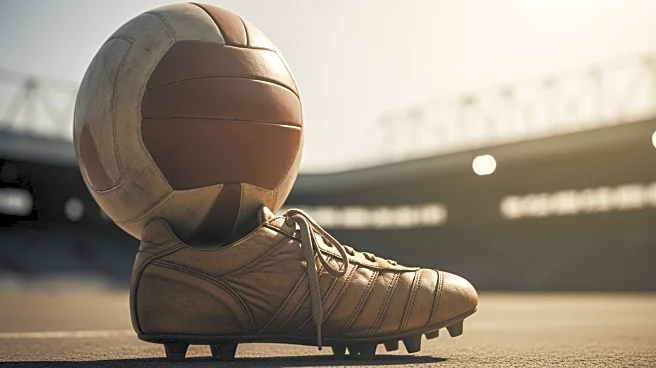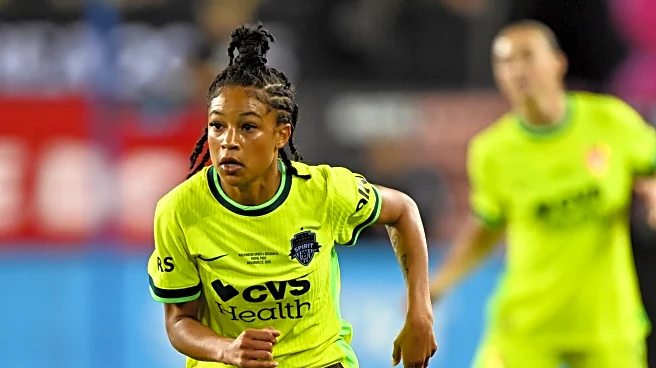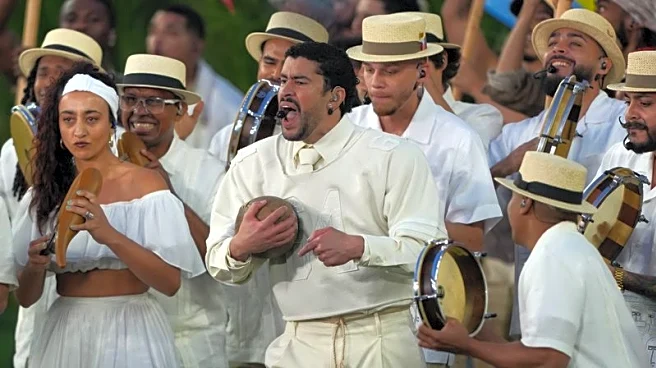What's Happening?
FC Barcelona, founded in 1899 by Joan Gamper and a group of enthusiasts, has evolved into one of the most successful and renowned football clubs globally. The club's history is marked by significant achievements,
including multiple La Liga titles, Copa del Rey trophies, and UEFA Champions League victories. FC Barcelona's identity is deeply intertwined with Catalan culture, symbolized by its motto 'Més que un Club' (More than a Club). The club's stadium, Camp Nou, is a central part of Barcelona's cultural landscape, although currently undergoing renovations. FC Barcelona's youth academy, La Masia, has produced legendary players like Lionel Messi and Xavi Hernandez, contributing to the club's sustained success.
Why It's Important?
FC Barcelona's impact extends beyond sports, serving as a symbol of Catalan identity and social integration. The club's commitment to Catalan culture and its democratic governance model have made it a beacon of regional pride. Economically, FC Barcelona is one of the richest clubs globally, with a vast fan base and significant influence in the football industry. The club's success on the field has translated into substantial commercial opportunities, including sponsorships and media rights. FC Barcelona's approach to player development through La Masia has set a benchmark for nurturing talent, influencing football academies worldwide.
What's Next?
As FC Barcelona continues to navigate stadium renovations, the club is temporarily hosting matches at the Olympic Stadium. The ongoing construction at Camp Nou is expected to enhance the stadium's capacity and facilities, further solidifying its status as a premier football venue. The club's strategic focus remains on maintaining competitive performance in domestic and international competitions, with an emphasis on integrating emerging talents from La Masia. FC Barcelona's leadership is also likely to continue advocating for Catalan cultural values, reinforcing its role as a cultural and political symbol.
Beyond the Headlines
FC Barcelona's history is marked by periods of political turmoil, including the Spanish Civil War and the Franco regime, which influenced the club's identity and operations. The club's resilience during these times has reinforced its status as a symbol of resistance and cultural preservation. The rivalry with Real Madrid, known as 'El Clásico,' is not only a sporting contest but also a reflection of historical and political tensions between Catalonia and the Spanish central government. FC Barcelona's commitment to social causes, exemplified by its partnership with UNICEF, highlights its broader societal impact.











